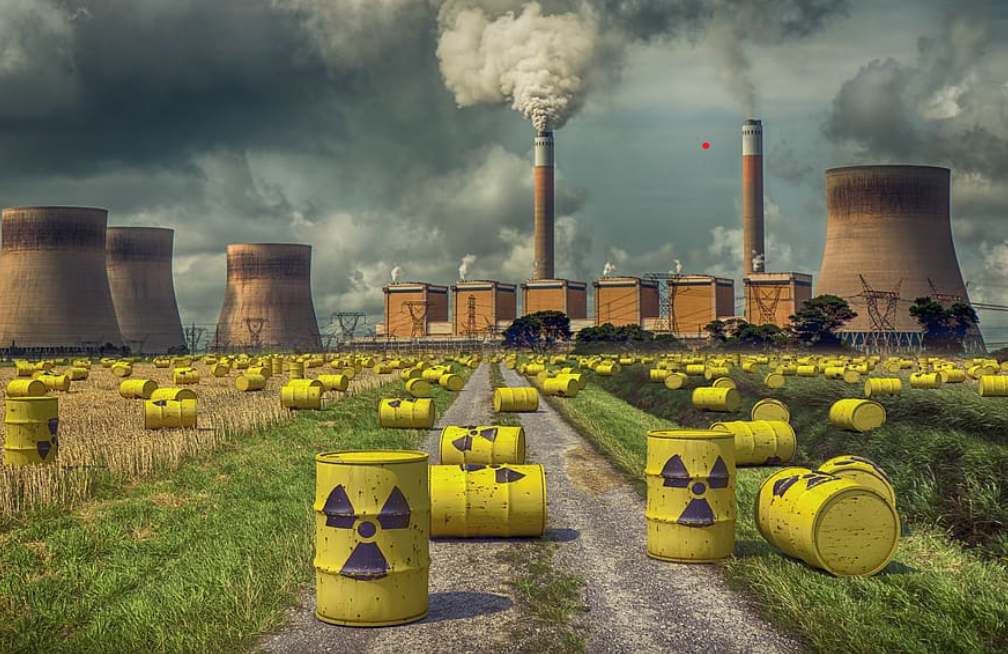Nuclear power plants are a significant source of energy in many Asian countries. However, the health risks associated with these facilities cannot be overlooked. In this article, we will explore the health risks of nuclear power plants in Asia and discuss the top concerns for 2024. As nuclear energy continues to be a pivotal part of Asia’s energy strategy, understanding these risks is crucial for policymakers and the general public alike.
Health Risks of Nuclear Power Plants in Asia: Top Concerns for 2024
Nuclear power plants pose several health risks due to the potential release of radioactive materials. These risks can have both immediate and long-term effects on human health and the environment.
1. Radiation Exposure
Immediate and Long-Term Health Effects
Radiation exposure is one of the most significant health risks associated with nuclear power plants. Acute exposure can lead to radiation sickness, characterized by nausea, vomiting, and fatigue. Long-term exposure, even at lower levels, increases the risk of cancer, particularly leukemia and thyroid cancer. Residents living near nuclear power plants are at a higher risk of exposure to radiation leaks, which can occur due to accidents or improper waste management.
2. Nuclear Accidents
Historical Context and Future Concerns
Nuclear accidents, although rare, can have catastrophic consequences. Incidents like the Chernobyl disaster in 1986 and the Fukushima Daiichi meltdown in 2011 have highlighted the severe health and environmental impacts of such events. In Asia, the increasing number of nuclear power plants raises the probability of potential accidents. These incidents can release large amounts of radioactive materials into the environment, leading to widespread health issues, including acute radiation syndrome, cancer, and genetic mutations.
3. Radioactive Waste Management
Challenges and Health Implications
Managing radioactive waste is a critical challenge for nuclear power plants. Improper disposal of nuclear waste can lead to contamination of soil and water, posing serious health risks to nearby populations. Radioactive waste can remain hazardous for thousands of years, and its leakage can lead to long-term environmental contamination, affecting agriculture and water sources. This contamination can cause chronic health issues, such as cancers and birth defects, among the affected communities.
4. Air and Water Contamination
Environmental and Health Impact
Nuclear power plants can lead to air and water contamination through routine emissions and accidental releases. Tritium, a radioactive isotope of hydrogen, is commonly released into the water bodies near nuclear facilities. Although considered less harmful than other radioactive materials, long-term exposure to tritium can still pose health risks. Airborne radioactive particles can also spread over large areas, increasing the risk of inhalation and subsequent health problems, such as lung cancer and respiratory diseases.
5. Psychological Effects
Mental Health Concerns
The presence of nuclear power plants and the potential for accidents can cause significant psychological stress among nearby residents. Fear of radiation exposure, potential evacuations, and long-term health implications can lead to anxiety, depression, and other mental health issues. The psychological impact of living near a nuclear facility is an important, yet often overlooked, aspect of the health risks associated with nuclear power.
6. Occupational Hazards
Risks to Nuclear Plant Workers
Workers at nuclear power plants are at a higher risk of radiation exposure due to their proximity to radioactive materials. Despite stringent safety protocols, accidents and operational errors can lead to significant exposure. Chronic exposure to low levels of radiation increases the risk of various cancers and other health conditions among nuclear plant workers. Ensuring the health and safety of these workers is crucial for minimizing occupational hazards.
7. Impact on Future Generations
Genetic and Developmental Risks
Exposure to radiation can have genetic and developmental effects on future generations. Radioactive materials can cause mutations in DNA, leading to congenital disabilities and other genetic disorders. Pregnant women exposed to high levels of radiation are at a higher risk of miscarriage, stillbirth, and developmental issues in their children. These long-term genetic effects underscore the importance of stringent safety measures and effective management of nuclear power plants.
Conclusion
In conclusion, the health risks of nuclear power plants in Asia are multifaceted and significant. From radiation exposure and nuclear accidents to the challenges of radioactive waste management, these risks necessitate careful consideration and proactive measures. As Asia continues to expand its nuclear energy capacity, it is crucial to address these health concerns to protect both current and future generations.
FAQ
Q: What are the immediate health effects of radiation exposure from nuclear power plants?
A: Immediate health effects of radiation exposure include radiation sickness, characterized by symptoms such as nausea, vomiting, and fatigue. Severe exposure can lead to acute radiation syndrome, which can be fatal without prompt medical treatment.
Q: How do nuclear accidents affect public health?
A: Nuclear accidents can release large amounts of radioactive materials into the environment, leading to widespread health issues such as acute radiation syndrome, increased cancer risk, and genetic mutations. Long-term environmental contamination can also affect agriculture and water sources.
Q: What measures can be taken to reduce the health risks associated with nuclear power plants?
A: Measures to reduce health risks include implementing stringent safety protocols, effective radioactive waste management, regular monitoring of radiation levels, and emergency preparedness plans. Public awareness and education about radiation risks are also crucial.
Q: How does radioactive waste pose health risks?
A: Radioactive waste can contaminate soil and water, posing long-term health risks such as cancers and birth defects. Proper disposal and management of radioactive waste are essential to prevent environmental contamination and protect public health.
Q: What are the psychological effects of living near a nuclear power plant?
A: Living near a nuclear power plant can cause significant psychological stress, including anxiety, depression, and fear of radiation exposure. The potential for accidents and evacuations can exacerbate these mental health issues.
Addressing the health risks associated with nuclear power plants in Asia is vital for ensuring the well-being of both local communities and the environment. By understanding and mitigating these risks, we can better harness the benefits of nuclear energy while protecting public health.
